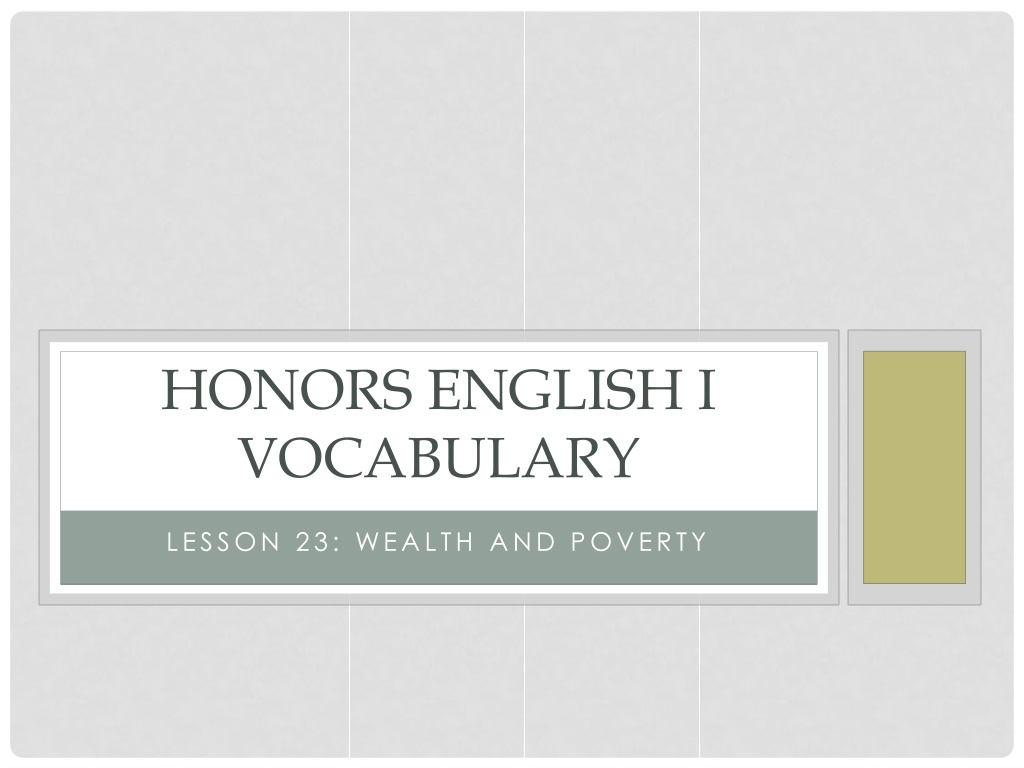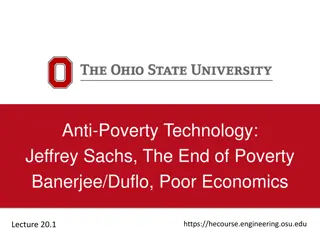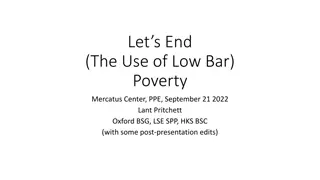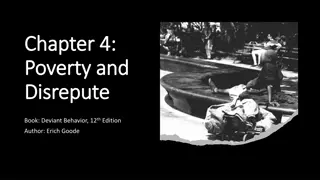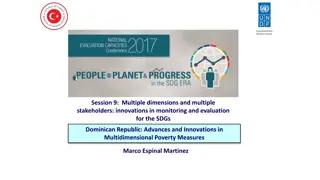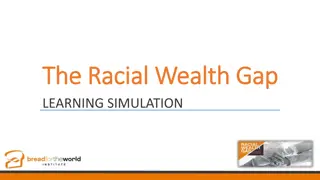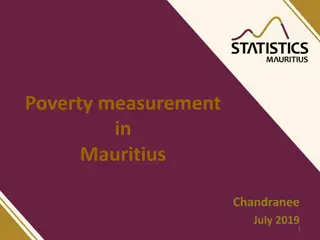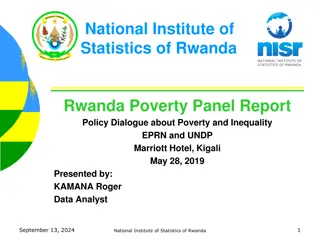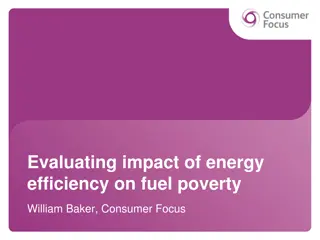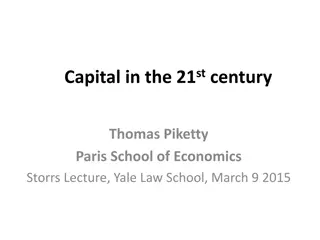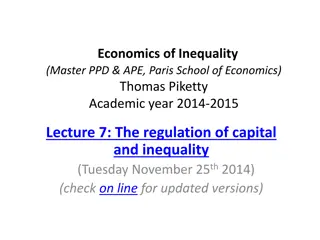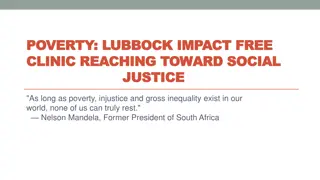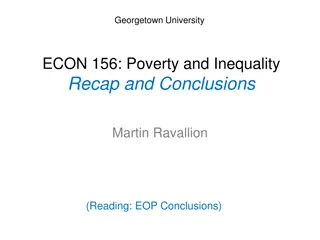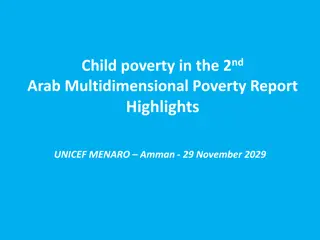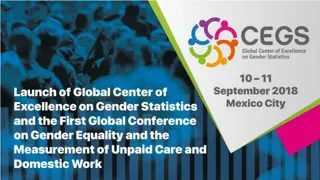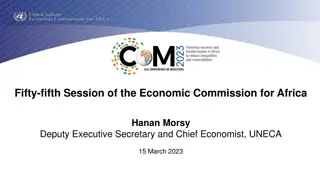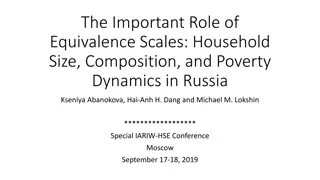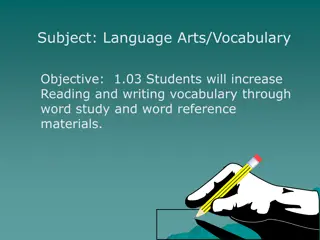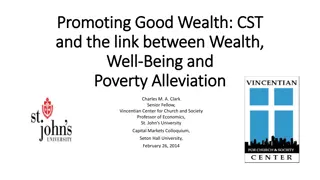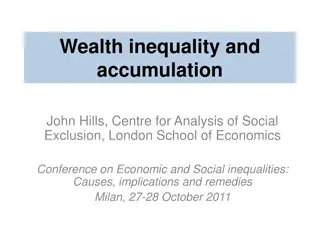Vocabulary Lesson 23: Wealth and Poverty
A vocabulary lesson focusing on words related to wealth and poverty. The lesson covers terms such as austerity, depreciate, equity, frugal, indigent, munificent, pecuniary, and recession, with definitions and examples provided for each. Enhance your vocabulary with these words linked to financial well-being and economic status.
Download Presentation

Please find below an Image/Link to download the presentation.
The content on the website is provided AS IS for your information and personal use only. It may not be sold, licensed, or shared on other websites without obtaining consent from the author. Download presentation by click this link. If you encounter any issues during the download, it is possible that the publisher has removed the file from their server.
E N D
Presentation Transcript
HONORS ENGLISH I VOCABULARY LESSON 23: WEALTH AND POVERTY
AUSTERITY (noun) a. Strict economy, especially that imposed by force. b. Severity or sternness of appearance or disposition. c. Severity or strictness of discipline, especially moral discipline. d. The state of being bare of ornamentation or decoration. Example: For two years, the austerity we were required to practice was unrelieved by even the smallest treat.
DEPRECIATE (intrans. verb) To decrease in value (trans. verb) a. To cause to decrease in price or value. b. To undervalue; belittle Example: Our investments depreciated so quickly that we were forced to sell at a loss.
EQUITY (noun) a. The value of a property after subtracting liabilities that can be claimed against it; net value b. The state or quality of being just, impartial, and fair c. Something that is just, impartial, or fair Example: It is possible to get a loan based on the equity of one s house.
FRUGAL (adjective) a. Avoiding the unnecessary expenditure of money; thrifty b. Costing little; inexpensive Example: Even though she is a wealthy woman who owns her own business, Ms. Clayton still keeps the frugal habits she adopted when she was poor.
INDIGENT (adjective) Lacking money or resources to provide adequately the necessities of life; needy; impoverished Example: When refugees arrived, they were indigent, but through hard work they prospered.
MUNIFICENT (adjective) a. Very generous in giving b. Marked by or showing great generosity Example: One alumna s munificent donation made it possible for the college to build a new library.
PECUNIARY (adjective) Consisting or having to do with money. Example: The injured workers sued the company to recover their pecuniary losses, as well as to get compensation for mental and physical suffering.
RECESSION (noun) a. A moderate and brief decline in economic activity b. The act of withdrawing or going back Example: During the last recession, the number of people without jobs increased by nearly a million.
REMUNERATE (trans. verb) a. To pay compensation for goods, services, or losses b. To pay compensation to someone for goods, services, or losses Example: Although he was working as a volunteer, Darrel nevertheless expected to be remunerated in some way.
SOLVENT (adjective) a. Capable of meeting all financial obligations, such as the payment of debts. b. Capable of dissolving another substance. (noun)A liquid capable of dissolving another substance Example: Because the business is no longer solvent, the store will close next week.
